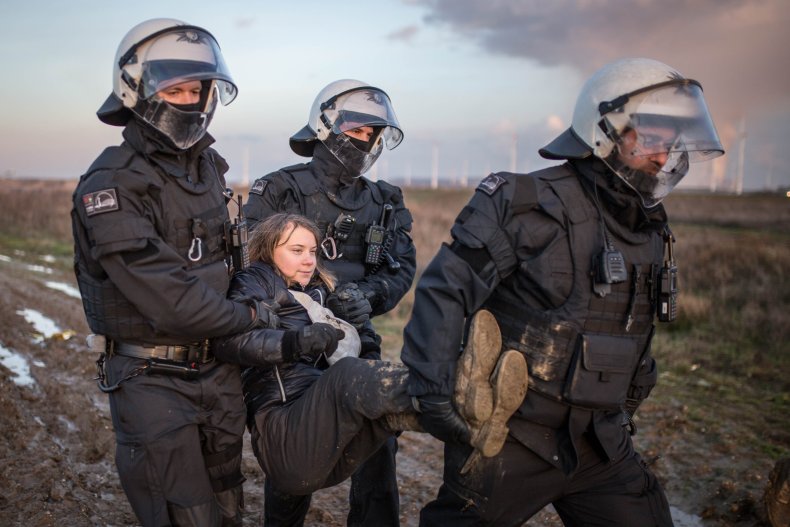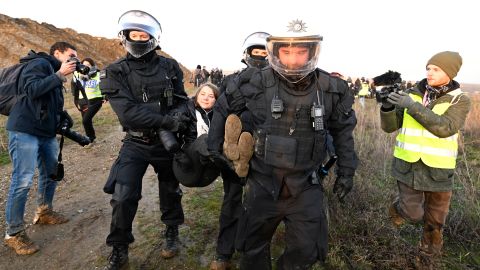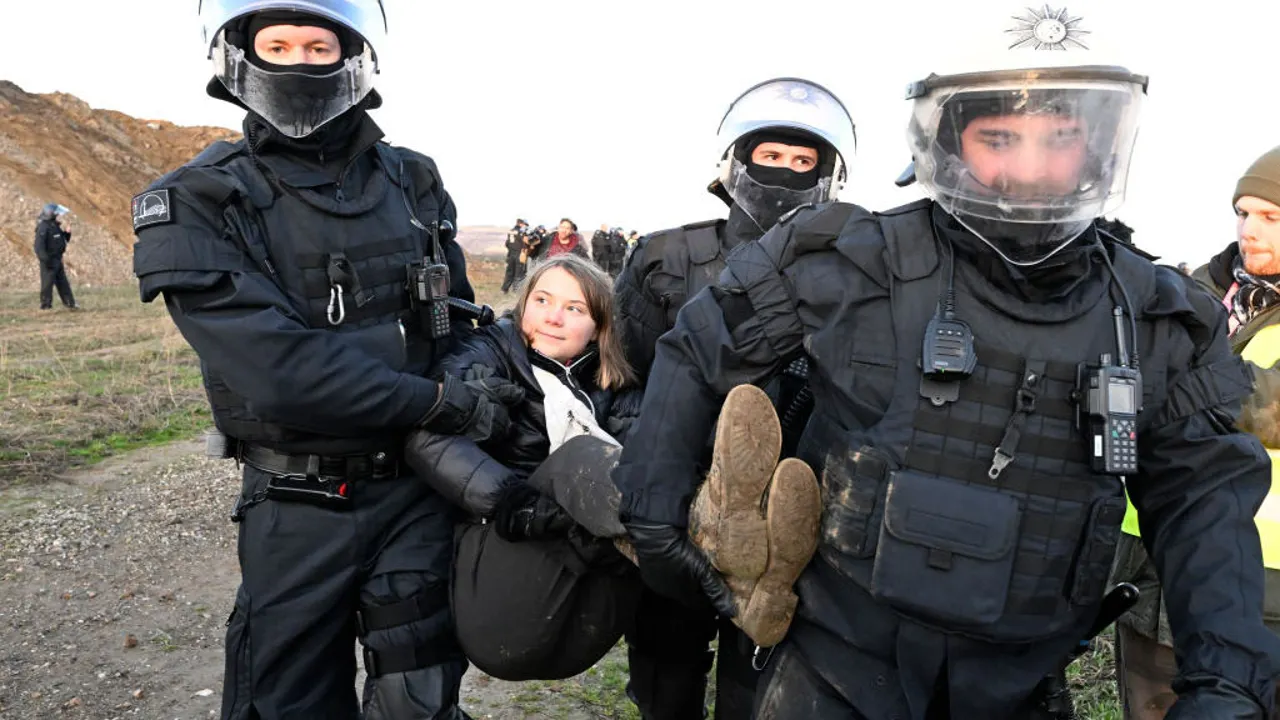Greta Thunberg, a climate activist, was detained by police in Germany during a coal mine protest.
Greta Thunberg, a climate activist, was detained by German police during a protest against the expansion of a coal mine in the west German village of Lützerath.
Thunberg was detained at the site for the second time on Tuesday, according to police spokesperson Christof Hüls. She was part of a large group of protesters who broke through a police barrier and encroached on a coal pit, which authorities have yet to secure completely, according to Hüls.

Following the group’s advance on the coal pit, police were concerned that the “masses of protesters” could set the ground in motion after it had been softened by recent rains. According to police, officers intervened, removing people from the “danger area” and detaining them, one of whom was Thunberg.
“We were aware of who she was, but she did not receive VIP treatment,” Hüls explained. “She didn’t fight back,” he added.
Thunberg was the main speaker at the rally on Saturday, and he said she “surprisingly” returned to protest on Sunday when she was detained for the first time, and then again on Tuesday.
Related News: Greta Thunberg Twitter Feud May Have Led to Alleged Sex Trafficker’s Arrest
According to Reuters, police said the group detained on Tuesday would be released later that day.

Thunberg was among the thousands of activists and protesters who took part in weekend demonstrations against the razing of a German village to make way for an expansion of the Garzweiler lignite coal mine, which is owned by the European energy giant RWE. RWE intends to construct a 1.5-kilometer perimeter fence around the village after the eviction is completed, sealing off the village’s buildings, streets, and sewers before they are demolished.
For climate activists, the expansion of the coal mine is significant. They claim that continuing to burn coal for energy will increase greenhouse gas emissions and violate the Paris Climate Agreement’s goal of keeping global temperature rise to 1.5 degrees Celsius above pre-industrial levels. Lignite is the most polluting type of coal, which is the most polluting fossil fuel in and of itself.
Thunberg tweeted on Friday that she was protesting the expansion in Lützerath and invited others to join her. Thunberg addressed the activists on Saturday. “The carbon is still there,” she explained. “And this struggle will not be over as long as the carbon remains in the ground.”
“We must put an end to the current destruction of our planet and the sacrifice of people for the sake of short-term economic growth and corporate greed,” she said.
Greta Thunberg Twitter
Climate strike week 230. We are currently in Lützerath, a German village threatened to be demolished for an expansion of a coal mine. People have been resisting for years. Join us here at 12 or a local protest tomorrow to demand that #LützerathBleibt !#ClimateStrike pic.twitter.com/hGrCK6ZQew
— Greta Thunberg (@GretaThunberg) January 13, 2023
Clashes between activists and police have been ongoing this month, with photos from the protests showing officers dressed in riot gear removing demonstrators. According to CNN, some of the protesters have been in Lützerath for more than two years, occupying homes abandoned by former residents who were evicted to make way for the mine.
The eviction operation has involved over 1,000 police officers. The majority of the village’s structures have now been demolished and replaced with excavating machines.
Also Read: Greta Thunberg Biography and Protest Career Activity
RWE and Germany’s Green Party both deny that the mine expansion will increase overall emissions. They are claiming that European caps mean that any additional carbon emissions can be offset. Several climate reports, however, have emphasized the need to accelerate the transition to clean energy and away from fossil fuels.
According to recent research, Germany may not even require the extra coal. According to an August report by the international research platform Coal Transitions. Even if coal plants operate at full capacity until the end of this decade. There is already more coal available than needed from existing supplies.






